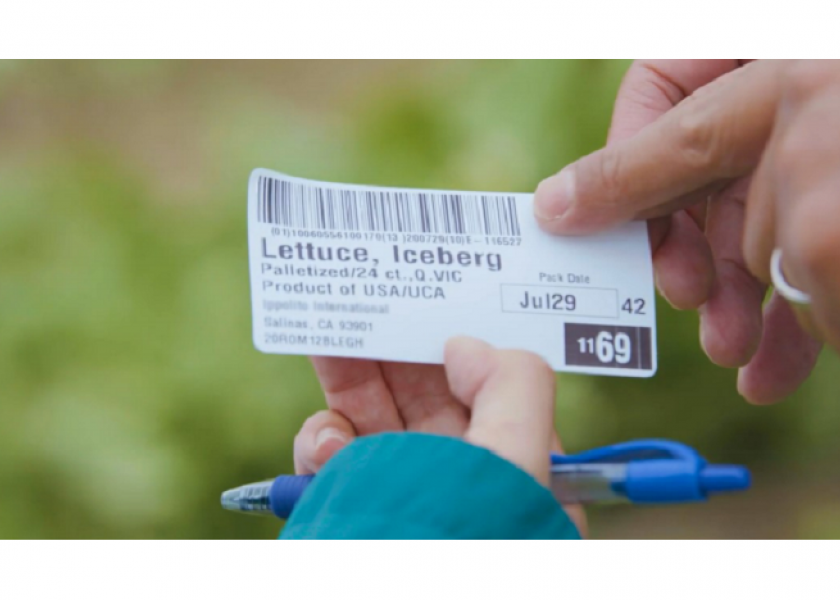California LGMA survey looks at members’ traceability plans

Members of the California Leafy Greens Marketing Agreement, who grow an overwhelming majority of the lettuce and other leafy greens in the state, and 80% of the U.S. lettuce, say they’re capable of quickly tracking recalled products.
The LGMA conducted a survey of members, who are required by the group’s bylaws to have a system to trace back to the field from which it originated to the customer who bought it from the grower, a one-step forward, one-step back traceability model.
“Verification that a traceback system is in place happens every time an LGMA member is audited by the government, which occurs about five times per year under our program,” Scott Horsfall, CEO of the California LGMA, said in a news release. “We can say with confidence that 100% of our members have a traceback system in place.”
The survey was designed to help the group better understand how growers’ traceback systems are helping health and regulatory agencies in outbreak investigations, according to the release — and if additional requirements could improve the speed/accuracy in tracking product in future outbreak.
Even before the Food and Drug Administration made updating tracking technology in the industry a priority of its New Era of Smarter Food Safety, former FDA Commissioner Scott Gottlieb noted that investigations into the source of romaine lettuce tainted with E. coli would benefit from increased technology in the grower-shipper community.
Gottlieb noted that investigators were handed printed records for traceability verification, and even hand-written notes, which prolonged the investigation.
Fifty-two of the 93 LGMA growers responded to the survey, representing a cross-section of processors, growers and shippers of varying sizes.
According to the LGMA survey, 15% of LGMA member still use paper-based tracking systems.
“We’ve heard reports from government investigators that too many traceback systems involve antiquated paper-based systems,” Horsfall said in the release. “We did find that some (15%) of our members use paper-based systems, but the majority are using electronic systems.”
Horsfall said it’s important to note that all respondents reported being able to trace back to a field within two hours, regardless of systems they use.
Sixty-three percent of respondents use the voluntary Produce Traceability Initiative for labeling and traceback, he said.
“What we can conclude from this survey is that LGMA members are collecting detailed information through their traceback systems.” Horsfall said in the release. “But, in practice, traceback systems within the supply chain are not working as quickly as needed.”
The LGMA and industry needs to work with the FDA to determine how traceback systems at the grower-shipper level can better assist in investigations, he said.
Horsfall said the LGMA supports an ongoing project coordinated by several food industry associations including United Fresh Produce Association and the Produce Marketing Association to examine and test traceback capabilities throughout the supply chain.
The Leafy Greens Traceability Pilot involves the United Fresh Produce Association, Produce Marketing Association and others is looking at traceback capabilities in the supply chain.
Jennifer McEntire, senior vice president of food safety and technology at United Fresh, said in the release the pilot will help find what information can be quickly shared in a format that allows it to connect the supply chain.
“The insights from the pilots will aid in more quickly and effectively locating the source of contamination during an actual outbreak,” she said in the release.
Related stories:
Leafy greens growers prepare for Yuma, beef up safety measures
New Era of Smarter Food Safety is upon us







